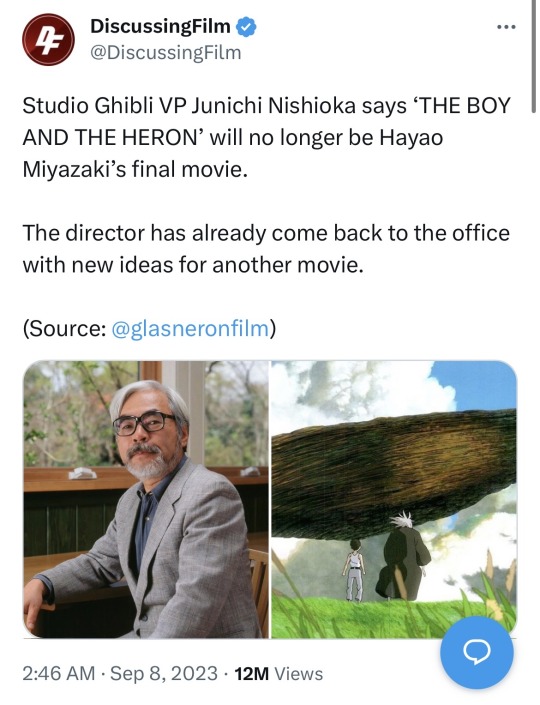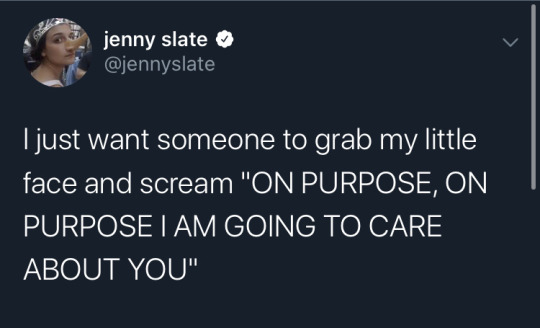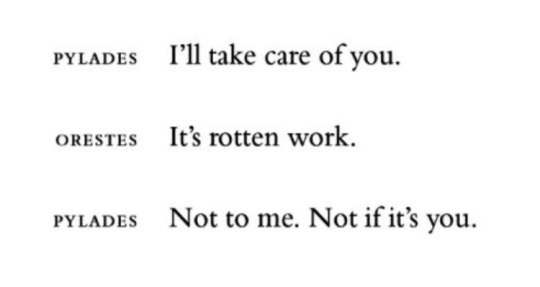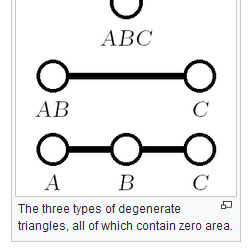Text

love that he keeps doing this. genuinely my favorite fucking bit
106K notes
·
View notes
Text




The snow fell and the castle rose. Two walls ankle-high, the inner taller than the outer. Towers and turrets, keeps and stairs, a round kitchen, a square armory, the stables along the inside of the west wall. It was only a castle when she began, but before very long Sansa knew it was Winterfell. She found twigs and fallen branches beneath the snow and broke off the ends to make the trees for the godswood. For the gravestones in the lichyard she used bits of bark. Soon her gloves and her boots were crusty white, her hands were tingling, and her feet were soaked and cold, but she did not care. The castle was all that mattered. Some things were hard to remember, but most came back to her easily, as if she had been there only yesterday. The Library Tower, with the steep stonework stair twisting about its exterior. The gatehouse, two huge bulwarks, the arched gate between them, crenellations all along the top... And all the while the snow kept falling, piling up in drifts around her buildings as fast as she raised them.
6.5K CELEBRATION: 📼 + GAME OF THRONES
↳ for @elena-gilbert
2K notes
·
View notes
Text
sometimes you have to do the thing that makes you happy and have that be enough. it may not be the next big thing. it may not bring you engagements, reblogs or conversations, but it’ll make you happy and that has to count too.
do the thing that’ll make you happy because it’s been rotting in your brain, making the day go a little quicker until you can get back to it. do it because it makes you excited—like, a genuine smile trying to show (if it doesn’t crack over your face) as you put pen/pencil to paper or screen, or words to sentences, sentences to paragraphs, and paragraphs to scenes.
create the art, write the fic, make the gif or write the poem that’ll make you grin. tell or show the story that sits in your head and tries to silence all the others—even if it means abandoning (for now) a story that’s made you popular or the thing that made you feel “seen”. do it, even if you’ve never drawn/created/or written before, and share it because you want to, not because you feel obligated.
take this as your sign to do the things that make you happy—whatever form that is. and be kind to yourself, you’re allowed to change your mind or swap fandoms; you’re allowed to make mistakes and draw four fingers instead of five or leave an obvious typo. because you’re human, and because we all start somewhere—even when you move fandoms, even when you just made a tumblr or AO3 acct.
and because it’s okay to just create for fun and happiness.
432 notes
·
View notes
Text
A musician wakes from a terrible nightmare. In his dream he finds himself in a society where music education has been made mandatory.
“We are helping our students become more
competitive in an increasingly sound-filled world.”
Educators, school systems, and the state are put in charge of this vital project. Studies are commissioned, committees are formed, and decisions are made— all without the advice or participation of a single working musician or composer.
Since musicians are known to set down their ideas in the form of sheet music, these curious black dots and lines must constitute the “language of music.” It is imperative that students become fluent in this language if they are to attain any degree of musical competence; indeed, it would be ludicrous to expect a child to sing a song or play an instrument without having a thorough grounding in music notation and theory.
Playing and listening to music, let alone composing an original piece, are considered very advanced topics and are generally put off until college, and more often graduate school.
As for the primary and secondary schools, their mission is to train students to use this language— to jiggle symbols around according to a fixed set of rules:
“Music class is where we take out our staff paper, our teacher puts some notes on the board, and we copy them or transpose them into a different key. We have to make sure to get the clefs and key signatures right, and our teacher is very picky about making sure we fill in our quarter-notes completely. One time we had a chromatic scale problem and I did it right, but the teacher gave me no credit because I had the stems pointing the wrong way.”
In their wisdom, educators soon realize that even very young children can be given this kind of musical instruction. In fact it is considered quite shameful if one’s third-grader hasn’t completely memorized his circle of fifth.
“I’ll have to get my son a music tutor. He simply won’t apply himself to his music homework. He says it’s boring. He just sits there staring out the window, humming tunes to himself and making up silly songs.”
In the higher grades the pressure is really on. After all, the students must be prepared for the standardized tests and college admissions exams. Students must take courses in Scales and Modes, Meter, Harmony, and Counterpoint.
“It’s a lot for them to learn, but later in college when they finally get to hear all this stuff, they’ll really appreciate all the work they did in high school.”
Of course, not many students actually go on to concentrate in music, so only a few will ever get to hear the sounds that the black dots represent. Nevertheless, it is important that every member of society be able to recognize a modulation or a fugal passage, regardless of the fact that they will never hear one.
“To tell you the truth, most students just aren’t very good at music. They are bored in class, their skills are terrible, and their homework is barely legible. Most of them couldn’t care less about how important music is in today’s world; they just want to take the minimum number of music courses and be done with it. I guess there are just music people and non-music people. I had this one kid, though, man was she sensational! Her sheets were impeccable— every note in the right place, perfect calligraphy, sharps, flats, just beautiful. She’s going to make one hell of a musician someday.”
Waking up in a cold sweat, the musician realizes, gratefully, that it was all just a crazy dream. “Of course!” he reassures himself, “No society would ever reduce such a beautiful and meaningful art form to something so mindless and trivial; no culture could be so cruel to its children as to deprive them of such a natural, satisfying means of human expression. How absurd!”
Meanwhile, on the other side of town, a painter has just awakened from a similar nightmare...
I was surprised to find myself in a regular school classroom— no easels, no tubes of paint.
“Oh we don’t actually apply paint until high school,” I was told by the students. “In seventh grade we mostly study colors and applicators.” They showed me a worksheet. On one side were swatches of color with blank spaces next to them. They were told to write in the names. “I like painting,” one of them remarked, “they tell me what to do and I do it. It’s easy!”
After class I spoke with the teacher. “So your students don’t actually do any painting?” I asked.
“Well, next year they take Pre-Paint-by-Numbers. That prepares them for the main Paint-by-Numbers sequence in high school. So they’ll get to use what they’ve learned here and apply it to real-life painting situations— dipping the brush into paint, wiping it off, stuff like that. Of course we track our students by ability. The really excellent painters— the ones who know their colors and brushes backwards and forwards— they get to the actual painting a little sooner, and some of them even take the Advanced Placement classes for college credit. But mostly we’re just trying to give these kids a good foundation in what painting is all about, so when they get out there in the real world and paint their kitchen they don’t make a total mess of it.”
“Um, these high school classes you mentioned...”
“You mean Paint-by-Numbers? We’re seeing much higher enrollments lately. I think it’s mostly coming from parents wanting to make sure their kid gets into a good college. Nothing looks better than Advanced Paint-by-Numbers on a high school transcript.”
“Why do colleges care if you can fill in numbered regions with the corresponding color?”
“Oh, well, you know, it shows clear-headed logical thinking. And of course if a student is planning to major in one of the visual sciences, like fashion or interior decorating, then it’s really a good idea to get your painting requirements out of the way in high school.”
“I see. And when do students get to paint freely, on a blank canvas?”
“You sound like one of my professors! They were always going on about expressing yourself and your feelings and things like that—really way-out-there abstract stuff. I’ve got a degree in Painting myself, but I’ve never really worked much with blank canvasses. I just use the Paint-by-Numbers kits supplied by the school board.”
Sadly, our present system of mathematics education is precisely this kind of nightmare. In fact, if I had to design a mechanism for the express purpose of destroying a child’s natural curiosity and love of pattern-making, I couldn’t possibly do as good a job as is currently being done— I simply wouldn’t have the imagination to come up with the kind of senseless, soul-crushing ideas that constitute contemporary mathematics education.
Everyone knows that something is wrong. The politicians say, “we need higher standards.”
The schools say, “we need more money and equipment.” Educators say one thing, and teachers say another. They are all wrong.
The only people who understand what is going on are the ones most often blamed and least often heard: the students. They say, “math class is stupid and boring,” and they are right.
—Introduction to "A Mathematician's Lament" by mathematics educator Paul Lockhart. Full essay here:
15K notes
·
View notes
Text
Explaining a beautiful mathematical concept and the person asks for the real world application like bitch first off the real world application is it makes me personally ecstatic and second it doesn't need one because it's my special little princess concept
5K notes
·
View notes
Text
How well do you see color?
I’m cry I scored 60, I feel blind
668K notes
·
View notes
Text




jenny slate / two, sleeping at last / an oresteia, euripidies (trans. anne carson) / the chaos of stars, kiersten white
144K notes
·
View notes
Text
i’m seeing a lot of people reblogging suicide hotlines and this is just a reminder that this is a suicide help line that works like a text-based instant messenger for people who may need to talk to someone but have trouble/are uncomfortable making phone calls
1M notes
·
View notes
Text
i don't know who needs to hear this, but 'perfect' writing is a trap. all writing is subjective. what we create today, we may see as flawed tomorrow. what we see as flawed today, we may see as perfect tomorrow.
writing is the act of transmuting the human experience through words. and the human experience? it's a messy, chaotic thing filled with rough edges and uneven lines and mistakes and failures. you can erase all of that. you can. but then you're left with something sterile and artificial. you've effectively squeezed the soul out of your work, and i can think of nothing less appealing.
this isn't to say don't edit your work. please do. but keep it within reason, and make sure you're moving forward and not backward. momentum is key.
don't sit on an idea for three decades waiting for that dance with inspiration, or that most excellent opening, or that eureka plot twist, or the words to flow like magic from your fingertips. because it won't happen, and if it does, it'll strike like lightning and disappear twice as fast. the only surefire way to finish a story is to start. so write.
for the love of god, just write.
along the way, things will fall in line. i promise. and if they don't? then they already have. everything we create is a snapshot of who we are at the time of creation, and there's a beautiful authenticity to the misteps we make along the way. don't run from them-- embrace them. grow from them.
let their lessons flow through you and channel them into something tangible. if it's hard, then start with one word and keep going. don't erase it. don't start over. don't let yourself believe your story isn't worth telling because if you don't tell it, then no one else will. and that'd be a shame. a damn shame.
one word a day. one sentence a week.
whatever it takes.
it might be tough letting go of the idea of perfection. silencing your inner editor. your inner critic. it might be tough realizing that your story will never meet your standards, not completely, but it won't be half as tough as looking back and wondering where all the days, weeks, and years went; that in the pursuit of perfection, you forgot to ever write a story at all.
so forget about perfect. readers don't want it. why would they? they can't possibly relate-- none of us can.
instead, give readers a window to your imagination, stormclouds and all, and you'll be surprised by how many stick around for the rain. you'll be surprised how many relish the sound of your thunder. how many cherish the worlds that only you could bring to life.
1K notes
·
View notes
Text
My last post in hero/villain got such a good response, so we're doing another one. This snippet came to mind, and I just had to write it.
(Not like I'm working on a multi-part thing, that's not important at all, nooooooo)
I'm also trying to figure out how to turn asks on. Once I get them up, send in a request if you have one!
Locked
"I think you'll like it here." Villain said, stopping the car. "It's got everything."
From the passenger seat of the sedan, Hero glowered at their enemy.
"You can't stay silent forever." Villain continued, climbing out of the car. "You'll have to talk eventually."
They closed the door, and Hero just happened to notice a little detail that had slipped their nemesis by. For a second, they considered letting it lie. But Hero was desperate, and anything to stall for time so their team could find them was welcome.
So, as Villain reached the passenger door, Hero reached their bound hands over and locked it.
Villain tried to open it, and when the attempt failed they grinned, and felt in their pockets for their keys. Hero felt their heart sink. So much for stalling for time.
But as they watched, Villains smile faded and the patting became more frantic. They tried and failed again to open the door.
"Open the door!" Villain yelled. Hero barely manages to keep a straight face as they shake their head.
"Damn it!" Villain cursed.
That was how the hero team found them not 20 minutes later, struggling to get a car door open while their missing member cackled from inside the vehicle.
70 notes
·
View notes
Text
i don't know who needs to hear this, but 'perfect' writing is a trap. all writing is subjective. what we create today, we may see as flawed tomorrow. what we see as flawed today, we may see as perfect tomorrow.
writing is the act of transmuting the human experience through words. and the human experience? it's a messy, chaotic thing filled with rough edges and uneven lines and mistakes and failures. you can erase all of that. you can. but then you're left with something sterile and artificial. you've effectively squeezed the soul out of your work, and i can think of nothing less appealing.
this isn't to say don't edit your work. please do. but keep it within reason, and make sure you're moving forward and not backward. momentum is key.
don't sit on an idea for three decades waiting for that dance with inspiration, or that most excellent opening, or that eureka plot twist, or the words to flow like magic from your fingertips. because it won't happen, and if it does, it'll strike like lightning and disappear twice as fast. the only surefire way to finish a story is to start. so write.
for the love of god, just write.
along the way, things will fall in line. i promise. and if they don't? then they already have. everything we create is a snapshot of who we are at the time of creation, and there's a beautiful authenticity to the misteps we make along the way. don't run from them-- embrace them. grow from them.
let their lessons flow through you and channel them into something tangible. if it's hard, then start with one word and keep going. don't erase it. don't start over. don't let yourself believe your story isn't worth telling because if you don't tell it, then no one else will. and that'd be a shame. a damn shame.
one word a day. one sentence a week.
whatever it takes.
it might be tough letting go of the idea of perfection. silencing your inner editor. your inner critic. it might be tough realizing that your story will never meet your standards, not completely, but it won't be half as tough as looking back and wondering where all the days, weeks, and years went; that in the pursuit of perfection, you forgot to ever write a story at all.
so forget about perfect. readers don't want it. why would they? they can't possibly relate-- none of us can.
instead, give readers a window to your imagination, stormclouds and all, and you'll be surprised by how many stick around for the rain. you'll be surprised how many relish the sound of your thunder. how many cherish the worlds that only you could bring to life.
1K notes
·
View notes
Text
How to write a love-hate relationship
A love-hate relationship can be summed up with: 'Can't live with them, can't live without them.'
It's a relationship filled with strong emotions, where both participants seek each other out, but then fight about it.
Types of love-hate relationships
There are different types that can have a love-hate relationship: It can turn into a romantic relationship where the love-hate aspect creates a sexual tension between the characters. Or it can be a platonic relationship where a lot of bickering is involved, but also a lot of love for each other.
Examples:
siblings who always fight with each other, but also for each other
academic rivals that want to be the best, but also enjoy the competition with each other
a criminal and a police officer who are always on opposite sides, but have a deep respect for each other
the MC's best friends, who always fight for the MC's attention, but become best friends themselves in the process
From hate to love
In romance stories, love-hate relationships often turn from hate to love between the characters. To write this you need to think about the reason for the hate at first. Why do they dislike each other? Is it because of an event that took place? Something the other person did? Something they heard about that person? Or is it a character flaw they dislike about them?
After finding the reason behind the hate, you can now work on solving that problem. If it's an event or something they did, there can be an apology or a talk about a misunderstanding. If it's a character flaw they can work on themself or the other person starts to see that it's actually not a flaw, but something they start to like about that person.
You basically need to soften the interactions between both characters until they are ready to admit their love for each other. These interactions can become a humorous point in your story with a lot of banter.
Toxic relationships
It can be in the nature of a love-hate relationship to be toxic. The 'can't live with them, can't live without them' aspect creates a situation where the characters will be at each other's throats all the time, but they just can't leave the relationship. If you want your reader to read a more romantic, cute love-hate relationship, try to stay away from actual physical, psychological and verbal abuse. If they do something more than just banter, write how they realize their mistake and apologize and how they better themselves.
More:
Love-hate relationship prompts
How to write witty banter
Academic rivals ideas
Siblings Prompts
If you like my blog and want to support me, you can buy me a coffee or become a member! And check out my Instagram! 🥰
1K notes
·
View notes




